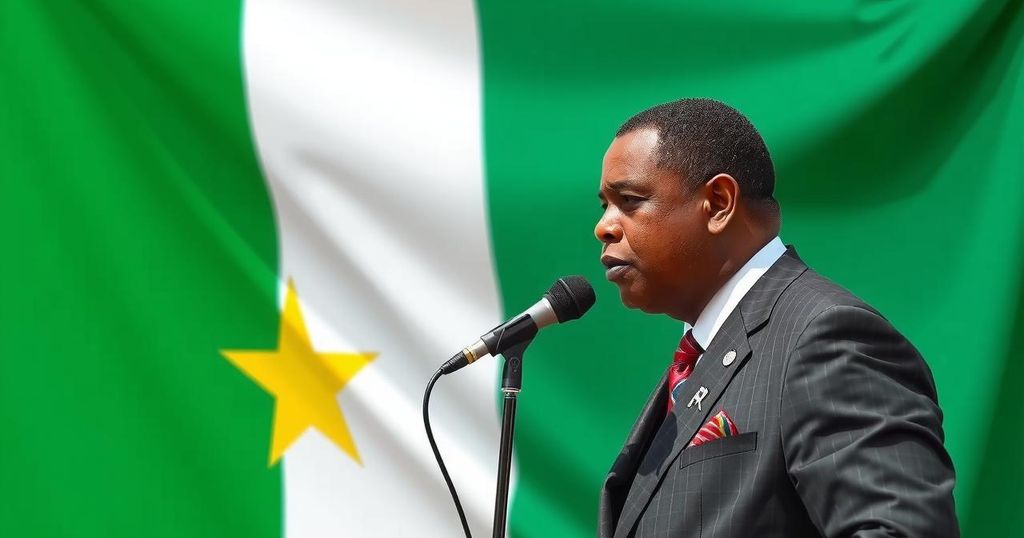Indefinite Postponement of Elections Exacerbates Guinea Bissau’s Political Crisis

President Umaro Sissoco Embalo of Guinea Bissau has indefinitely postponed the legislative elections originally set for November 24, extending the political limbo in the nation. Financial issues and logistical impediments prompted this decision, following armed clashes that led to the parliament’s dissolution. The ongoing political unrest and tensions between the president and opposition parties underline the challenges faced by this impoverished nation in establishing a stable electoral process.
On Monday, the President of Guinea Bissau, Umaro Sissoco Embalo, officially announced the indefinite postponement of the legislative elections that had been scheduled for November 24. This decision prolongs the ongoing political uncertainty in the small West African nation. President Embalo had previously established this election date following the dissolution of parliament in December 2023, which occurred after military confrontations were labeled as an attempted coup. Given the prevailing circumstances, this announcement was anticipated following warnings from government officials about financial and logistical challenges leading up to the election.
Guinea Bissau, a country plagued by instability and corruption since its independence from Portugal, has faced numerous political crises, including several coups. The existing political landscape has been further complicated by the presence of a coalition led by the African Party for the Independence of Guinea and Cape Verde (PAIGC), which has maintained a majority in the parliament since elections in June 2023. This has resulted in a tense coexistence between President Embalo and the PAIGC leadership. The postponement of the elections highlights the country’s ongoing struggle to stabilize its political framework and govern despite limited resources.
The indefinite postponement of elections in Guinea Bissau signals a continuation of the country’s political turmoil, compounded by financial constraints and logistical difficulties. This situation raises concerns about the future political climate, as the power struggle between President Embalo and opposition forces persists. Until new election dates are established, the uncertainty will likely prevail, further complicating the country’s path towards a stable and democratic governance system.
Original Source: punchng.com







